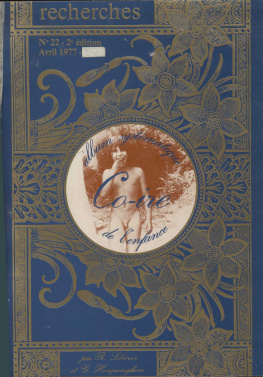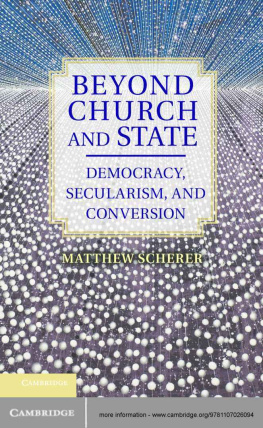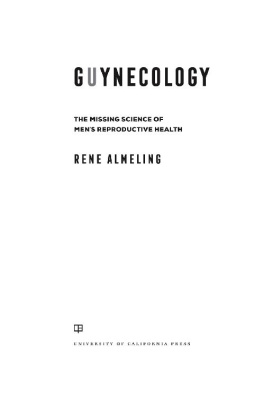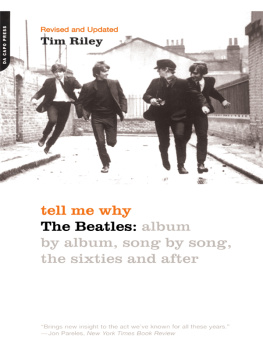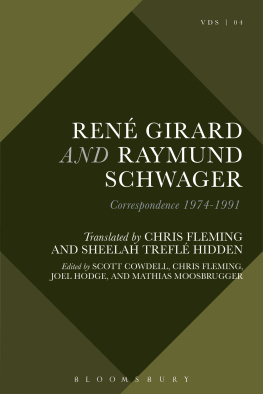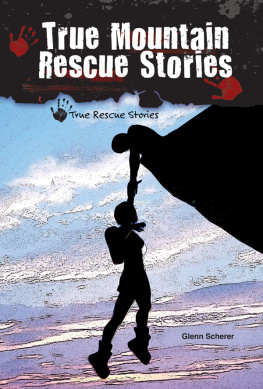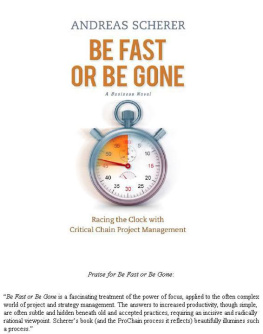René Schérer - Coming and Going Together: A Systematic Childhood Album
Here you can read online René Schérer - Coming and Going Together: A Systematic Childhood Album full text of the book (entire story) in english for free. Download pdf and epub, get meaning, cover and reviews about this ebook. year: 1977, publisher: CERFI, genre: Children. Description of the work, (preface) as well as reviews are available. Best literature library LitArk.com created for fans of good reading and offers a wide selection of genres:
Romance novel
Science fiction
Adventure
Detective
Science
History
Home and family
Prose
Art
Politics
Computer
Non-fiction
Religion
Business
Children
Humor
Choose a favorite category and find really read worthwhile books. Enjoy immersion in the world of imagination, feel the emotions of the characters or learn something new for yourself, make an fascinating discovery.
- Book:Coming and Going Together: A Systematic Childhood Album
- Author:
- Publisher:CERFI
- Genre:
- Year:1977
- Rating:5 / 5
- Favourites:Add to favourites
- Your mark:
- 100
- 1
- 2
- 3
- 4
- 5
Coming and Going Together: A Systematic Childhood Album: summary, description and annotation
We offer to read an annotation, description, summary or preface (depends on what the author of the book "Coming and Going Together: A Systematic Childhood Album" wrote himself). If you haven't found the necessary information about the book — write in the comments, we will try to find it.
René Schérer: author's other books
Who wrote Coming and Going Together: A Systematic Childhood Album? Find out the surname, the name of the author of the book and a list of all author's works by series.
Coming and Going Together: A Systematic Childhood Album — read online for free the complete book (whole text) full work
Below is the text of the book, divided by pages. System saving the place of the last page read, allows you to conveniently read the book "Coming and Going Together: A Systematic Childhood Album" online for free, without having to search again every time where you left off. Put a bookmark, and you can go to the page where you finished reading at any time.
Font size:
Interval:
Bookmark:
A Systematic Childhood Album
GUY HOCQUENGHEM AND REN SCHRER
Originally published at homintern.soy
What do you do when a full-length translated manuscript is left on your doorstep, of Guy Hocquenghem and Ren Schrers 1977 book Co-ire? Hocquenghem is a HOMINTERN regular - hes featured in several articles and weve run great translations of his work before (see Editors note on that piece for a paragraph description of Guy). When read through his English-language publications Hocquenghems story seems too neat (though no longer, with Max Foxs translation of Amphitheater of the Dead), a gay martyr kicked around radical left-wing groups until his premature death from AIDS, a seminal figure conveniently preserved in the amber of queer theory as a concrete link to the rest of the 68 left they love to cite. But Hocquenghem lived to see his ex-Maoist friends turn into Mitterands courtiers, and the moral backlash of the late 70s along with AIDS in the next decade fragment an already-split homosexual Left. Through all this he wrote, maintaining his trademark mixture of acceptance of present possibility and disgust at foreclosed future. We regard this text as a historical document for anyone interested in that moment of social realignment.
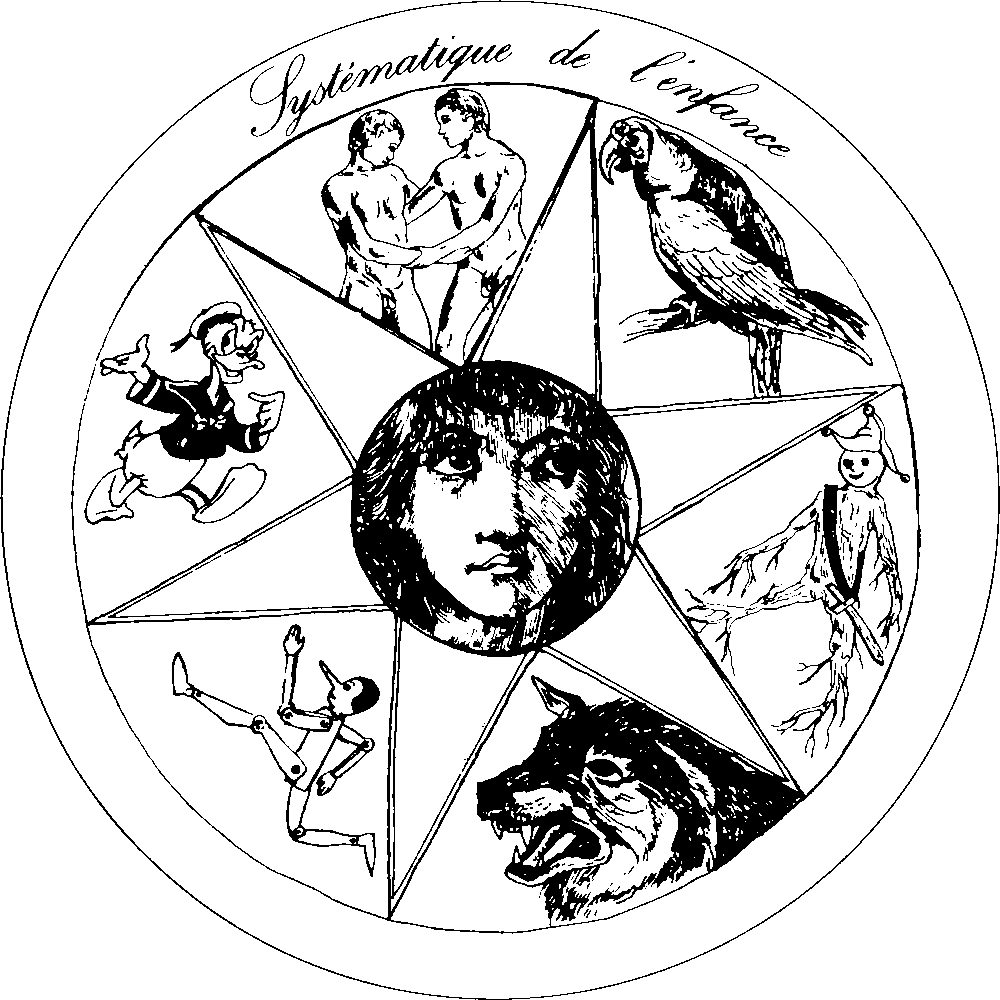
{-} Systematic of childhood (Original drawing by Antoine Carriat)
In January 2020, on a street in the 14th arrondissement of Paris, a plaque was erected to commemorate Guy Hocquenghem, the writer and militant homosexual, indicating the house where he lived from 1973 to 1977. On the third of September, a plaque was removed that had been dedicated to Guy Hocquenghem, the fervent apologist for pedocriminality. The plaque had been defended by Christophe Girard, a gay politician publicly criticized for his friendship with the pedophile writer Gabriel Matzneff and accusations of rape against a then-sixteen-year-old boy. Its removal came after its vandalization with tomato-sauce fake blood by members of a feminist groupuscule.
The original supporters of the plaque now claim to have been unaware of Guys writings about children, and this claim could be made by most of his anglophone fans as well: hes known primarily as the queer theorist who wrote Homosexual Desire, with his other works mostly untranslated and far less read. This, then, is the book behind the controversy! Co-written with Guys one-time erastes Ren Schrer, it was published in 1976 by Flix Guattaris group CERFI, while Guy lived in a house that does not bear any plaque. Its an ambivalent work, making edgy claims (children want to be abducted!) while insisting on the modesty of its aims: not a political treatise, barely a theoretical work, only a display of raw materials, an attempt to put childhood in the context or constellation proper to it.
An excellent write-up of the current Hocquenghem affair, and the necessity in the face of it of continuing to read Guy, has been provided by the French queer publication Trou Noir. You can find my translation of the piece on my website, and (perhaps predictably, perhaps immodestly) I do recommend it. However, Id rather the question of pdocriminalit not completely overshadow the book itself, which is not about sexuality, even if it involves it. With that in mind, I also refer the reader to an interview with Foucault, who I think does a fine job explaining the role sex should be understood as having in Co-ire:
Some say that the childs life is sexual. From the milk-bottle to puberty, that is all it is. Behind the desire to learn to read or the taste for comic strips, from first to last, everything is sexuality. Well, are you sure that this type of discourse is effectively liberating? Are you sure that it will not lock children into a sort of sexual insularity? And what if, after all, they didnt give a hoot? If the liberty of not being an adult consisted just in not being a slave of the law, the principle, the /locus communis/ of sexuality, would that be so boring after all? If it were possible to have polymorphic relationships with things, people and the body, would that not be childhood? This polymorphism is called perversity by the adults, to reassure themselves, thus coloring it with the monotonous monochrome of their own sex.... Read the book by Schrer and Hocquenghem. It shows very well that the child has an assortment of pleasure for which the sex grid is a veritable prison.
A few pieces of terminology werent self-explanatory, so Ill clarify them here rather than leave long footnotes.
Co-ire: the title of this book is a play on coitus, turning it into an infinitive and resurrecting its literal sense of together-going. Ive tried to approximate the joke in my rendition. An alternative would be to form cotioning from coition, by analogy to transitioning.
Rapt, ravisseur, ravir: literally speaking, these mean abduction, abductor, to abduct. Through etymology, though, they pick up the connotations of rapture, of ravisher, andin the archaic sense emphasizing swift seizure and carrying-offrape.
Theres a history to this sense of abduction which carries a charge of potential, ambiguous consensuality. Rapt in France once designated an impediment to marriage, a factor recognized by the Church as making a marriage unlawful, specifically the violent and forced abduction of a woman from her established place of residence for the purpose of marriage. In the sixteenth century, though, it became a legal category, a crime defined to protect not the rights of the participants in a marriage, but the rights of parents over their offspring. Inducing a minora man under 31 or woman under 26to marry against the will of their parents was rapt whether it was forced (rapt de violence) or consensual (rapt de sduction). The definition was even stretched to include cases like the marriage of non-minors without parental consent and the seduction of a minor without intent to marry.
Its this conflation of violence and seduction that Hocquenghem and Schrer play with in Co-ire. English lacks words that capture a history of romantic bridenapping, I substitute kidnapping in the translation. Ive mostly kept to the word ab-duction, but it should echo with se-duction.
Pdrastre, pdrasque: pdraste in French may mean homosexual as much as pedophile, and the pejorative pd is often translated fag. Hocquenghem claims to enjoy swapping it for common slips of the tongue, which he takes as evocative variations: pdrastre as in Zoroastre, pdrasque as in the Provence mythological dragon Tarasque. The latter version also appears in Genets Notre-Dame des Fleurs. Ive gone for Zarathustra and pederastra over Zoroaster and pederaster, because astra sounds cosmic where aster sounds like an agent noun.
Citer-pause, pause, trans-lude, post-lude: the system of these odd in-between chapters is pulled from Fourier, a favorite of Ren Schrers whose influence he seems to have spread also to Guy. Italo Calvino explains them thus:
Eagerness to include the whole universe pervades [Fouriers] farraginous volumes, with their labyrinthine structure upon which complicated subdivisions proliferate a mass of prefaces, interludes, and conclusions indicated by a riot of terminology such as
Font size:
Interval:
Bookmark:
Similar books «Coming and Going Together: A Systematic Childhood Album»
Look at similar books to Coming and Going Together: A Systematic Childhood Album. We have selected literature similar in name and meaning in the hope of providing readers with more options to find new, interesting, not yet read works.
Discussion, reviews of the book Coming and Going Together: A Systematic Childhood Album and just readers' own opinions. Leave your comments, write what you think about the work, its meaning or the main characters. Specify what exactly you liked and what you didn't like, and why you think so.

